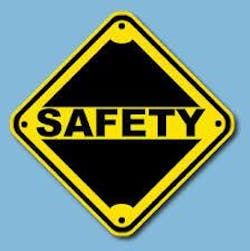Not long ago, I was asked to look at the large industrial presses at a potential client site. Even though no one had been hurt on any of the equipment over the prior 15 years, this company was very concerned about the safety of their presses and was eager to install a safety system.
I met with managers, operators and maintenance people to determine the desired level of safety needed and how to achieve it. I then compiled my results, came up with a solution, emailed it to the company, and ... received no response.
After two months of waiting, I contacted the company to ask about the status of their safety project. Their response was: “Simplified and done in house.” I was rather surprised, but accepted the response.
I am not saying that a safety system has to be difficult to administer, but what safety risk assessment would have allowed the word "simplified" to be inserted?
One month after receiving the company’s reply, a seasoned employee was killed on one of the presses at their facility. Immediately I thought, “Simplified and done in house.” I kept repeating it inside my head. “Simplified and done in house.”
Were inferior safety products used that made the simplified safety system substandard? Was the safety system not designed properly and only worked some of the time? Were major concerns overlooked? I cannot answer these questions, but I do know the solution. It is called a risk assessment.
If you visit an equipment supplier with the goal of creating a safety system, they will sell you the equipment you need. Any supplier can sell you safety items. But is it the right stuff? A safety controls integrator, however, will perform a complete risk assessment, engineer the system, and provide the correct safety equipment and supplies for you.
Machine safety is an area that should not be taken lightly. Sadly, many companies do just that and push aside the value of life. It is an uncomfortable topic, but for as long as businesses have operated, there have been accidents that required consideration of the value of a life—it is an issue that businesses and lawyers deal with repeatedly.
Given that reality, I would certainly never want to have to tell a family that their loved one was killed in a plant accident, particularly if the accident was due to neglect and could have been prevented. However, some businesses seem inclined to take their chances, especially when no one has ever been hurt on the equipment to date.
What words would you use to tell a family their loved one has been killed in an industrial accident? Certainly not “simplified and done in house.”
Rick Carpenter is a functional safety engineer at Loman Control Systems Inc., based in Lancaster, Pa. Loman Controls is a Certified member of the Control System Integrators Association. See Loman Control Systems' profile on the Industrial Automation Exchange.

